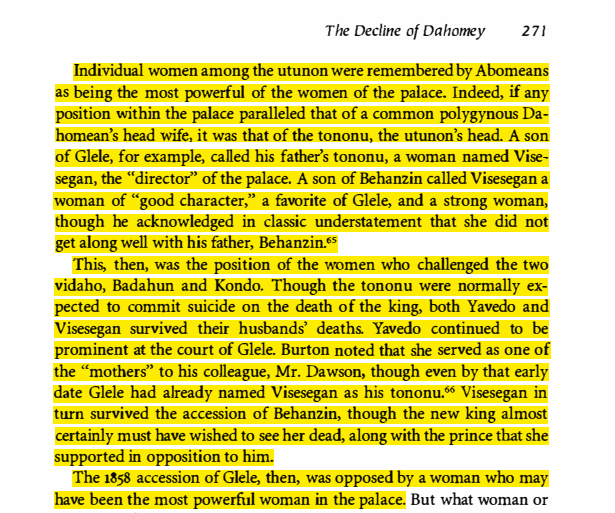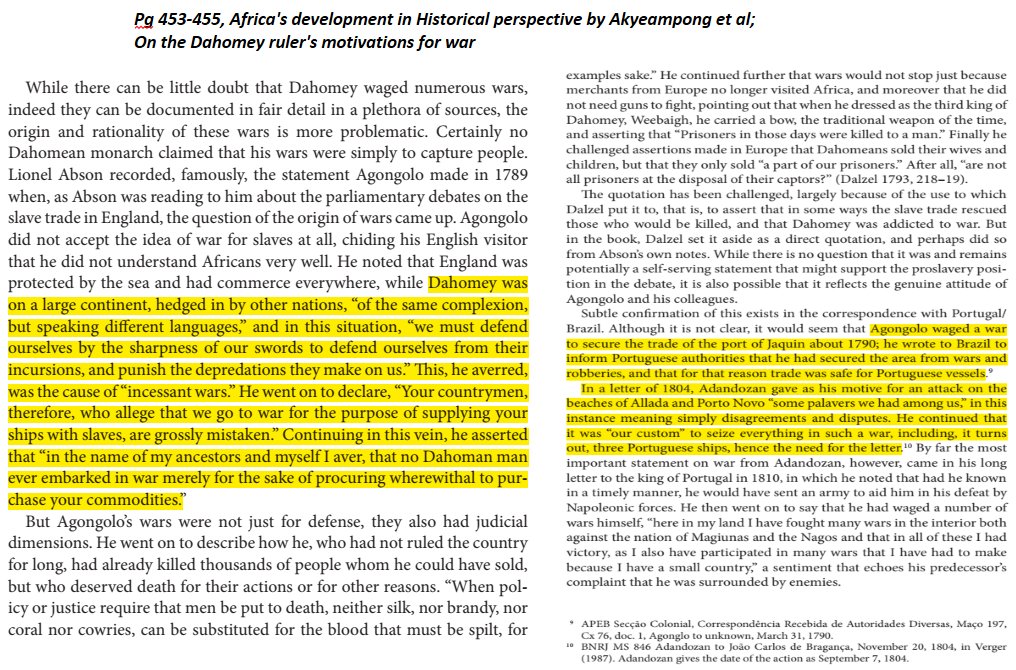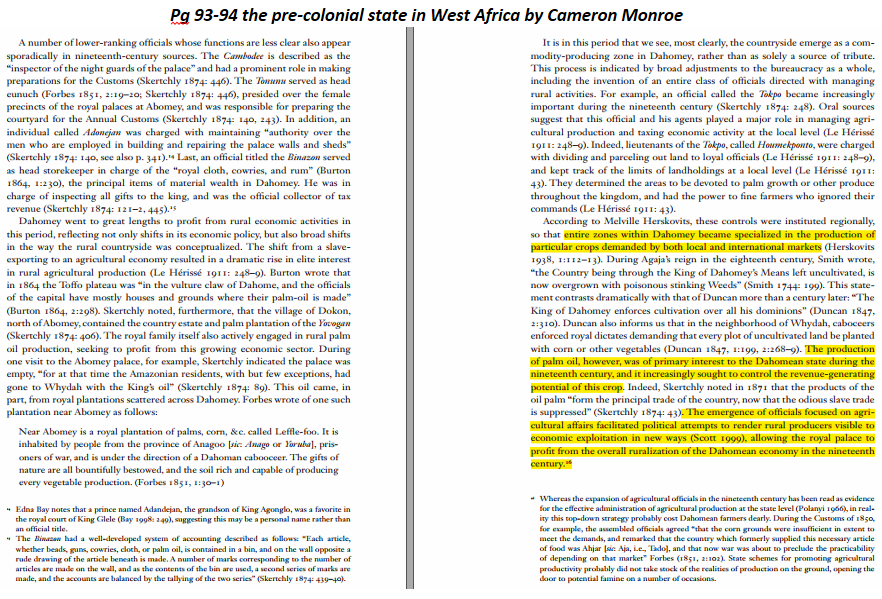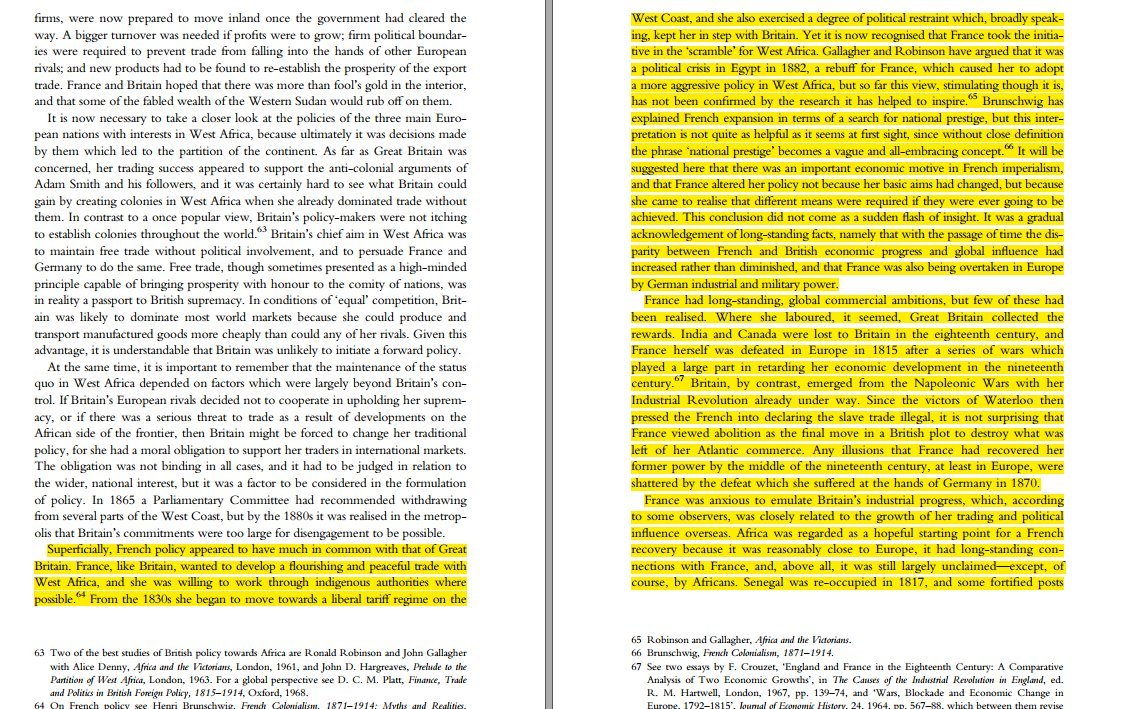
Thoughts on #ThewomanKing and Dahomey
truths, inaccuracies and slave trade
-The movie's general story isn't wrong; the Dahomey amazons -an all female regiment of Dahomey's army- did fight the French colonial armies in two wars; the first was in 1890 and the second was in 1892
truths, inaccuracies and slave trade
-The movie's general story isn't wrong; the Dahomey amazons -an all female regiment of Dahomey's army- did fight the French colonial armies in two wars; the first was in 1890 and the second was in 1892
-The king of Dahomey at the time however was Behanzin (r. 1890-1894) not Ghezo (r 1818-1859) who apparently, is the character played by John Boyega
the two are separated by another king named Glele
the two are separated by another king named Glele

the Amazons, like most west African armies by that time- were using guns, but they did carry swords for arm-to-arm combat
the trailer mostly shows guns in enemy forces
eg this man facing off with Viola's character; he's most likely a Senegalese soldier in the French forces

the trailer mostly shows guns in enemy forces
eg this man facing off with Viola's character; he's most likely a Senegalese soldier in the French forces


Some scenes try to capture the general look of the kingdom in terms of clothing and architecture
(at least within the mostly military context that its shown, compared to the usually colorful royal ceremonies)
i think these were the inspiration for the clothing and the pavilion
(at least within the mostly military context that its shown, compared to the usually colorful royal ceremonies)
i think these were the inspiration for the clothing and the pavilion

The fortress of shown may have been the French fort of St Louis at Ouidah, although the real one was much smaller
it was built in 1704, burned by the Dahomey armies in 1728, rebuilt, abandoned in 1810s, re-occupied in 1842 by the French and a hotspot for conflict with Dahomey
it was built in 1704, burned by the Dahomey armies in 1728, rebuilt, abandoned in 1810s, re-occupied in 1842 by the French and a hotspot for conflict with Dahomey

Dahomey had attacked such European forts in the 1720s and destroyed them
the scene in which an amazon attacks a French soldier, while its anachronistic within the context of the Franco-Dahomey war, did occur in the past
the scene in which an amazon attacks a French soldier, while its anachronistic within the context of the Franco-Dahomey war, did occur in the past

Like Viola's character, There were prominent women in Dahomey's history
eg Visesegan, a wife of King Glele (Ghezo's successor) she was a powerful, wealthy, and complex character
She tried to block Behazin's ascension in favor of her protégée by leveraging her foreign alliances



eg Visesegan, a wife of King Glele (Ghezo's successor) she was a powerful, wealthy, and complex character
She tried to block Behazin's ascension in favor of her protégée by leveraging her foreign alliances




The movie's portrayal of the courtly scenes and royal architecture certainly could have been better
(admittedly, we aren't shown much of anything else save for the military training and fighting scenes so it may not be as bad as the trailer makes it appear)
(admittedly, we aren't shown much of anything else save for the military training and fighting scenes so it may not be as bad as the trailer makes it appear)

*Misconceptions
Dahomey was not a major slave exporter
the volume of slave exports from the port of Ouidah dropped after its conquest by Dahomey; from an average of 15,000 slaves/yr in 1720s to an estimated
4,500 in 1780s (R. Law)
4,200 (D. Eltis)
1,700 (Atlantic slave database)


Dahomey was not a major slave exporter
the volume of slave exports from the port of Ouidah dropped after its conquest by Dahomey; from an average of 15,000 slaves/yr in 1720s to an estimated
4,500 in 1780s (R. Law)
4,200 (D. Eltis)
1,700 (Atlantic slave database)



The drop in slave exports from Dahomey's port of Ouidah was so large, that the entire slave coast's exports were slashed by half and continued to fall in the 1800s, never to recover their 1720s heights,
this was despite the proliferation in slave ports across the "slave coast"
this was despite the proliferation in slave ports across the "slave coast"

The reason for slave trade's decline was that Private traders sold the majority of slaves and not the state
In Dahomey's predecessors Allada & Hueda, private traders sold 87% of all slaves and low taxes encouraged them to sell at Ouidah
Dahomey raised taxes, private traders left


In Dahomey's predecessors Allada & Hueda, private traders sold 87% of all slaves and low taxes encouraged them to sell at Ouidah
Dahomey raised taxes, private traders left



Dahomey could have offset this decline by raiding
but Dahomey's military was weak and didn't measure up to its very exaggerated reputation as the "black Sparta" as popularized in abolitionist debates
for nearly a century (from 1738-1818) Dahomey was firmly under the rule of Oyo


but Dahomey's military was weak and didn't measure up to its very exaggerated reputation as the "black Sparta" as popularized in abolitionist debates
for nearly a century (from 1738-1818) Dahomey was firmly under the rule of Oyo



*sidenote
this cavalry army with African riders is almost certainly from the Oyo empire; Dahomey's suzerain
their armies inflicted many defeats on Dahomey's forces until Oyo's collapse early in Ghezo's reign when they were finally defeated
this cavalry army with African riders is almost certainly from the Oyo empire; Dahomey's suzerain
their armies inflicted many defeats on Dahomey's forces until Oyo's collapse early in Ghezo's reign when they were finally defeated

<continued>
Dahomey's didn't wage war primarily for producing slaves (ie slave raids)
Dahomey's wars were often defensive
the statement made by Boyega's character; that the enemy 'threatens their freedom', truly reflects Dahomey's military reality & statements made by its kings

Dahomey's didn't wage war primarily for producing slaves (ie slave raids)
Dahomey's wars were often defensive
the statement made by Boyega's character; that the enemy 'threatens their freedom', truly reflects Dahomey's military reality & statements made by its kings


Dahomey didn't struggle after the slave ban, It successfully transitioned to the "legitimate commerce" in palm oil which earned it much more revenue than slaves ever did
Dahomey was a much stronger, independent state in the 1800s than the 1700s when it was a tributary of Oyo

Dahomey was a much stronger, independent state in the 1800s than the 1700s when it was a tributary of Oyo


The French invaded Dahomey mostly for purely economic reasons and not --as their pretext went-- to end slave trade
This economic dispute was primarily over the relative prosperity of palm oil trade out of Cotonou - a port that was under Dahomey's rule


This economic dispute was primarily over the relative prosperity of palm oil trade out of Cotonou - a port that was under Dahomey's rule



Antony Hopkins study on west African economic history, explains this "economic basis of imperialism" how declining profits from legitimate commerce, vs increased capacity of European militaries, shifted the balance of power at the coast and led to the colonization of the interior 







I'm glad they're making movies on African history
and i think #ThewomanKing will be a good watch
as for Dahomey, it history was unfortunately hijacked and is misunderstood
please read
The kingdom of Dahomey and the Atlantic world: a misunderstood legacy
isaacsamuel.substack.com/p/the-kingdom-…
and i think #ThewomanKing will be a good watch
as for Dahomey, it history was unfortunately hijacked and is misunderstood
please read
The kingdom of Dahomey and the Atlantic world: a misunderstood legacy
isaacsamuel.substack.com/p/the-kingdom-…
*
some have pointed out that b'se this character's last name is Portuguese, that Dahomey will be fighting Portugal
i find this implausible
Dahomey only ever fought the Europeans (in 1720s & 1890s) who were French
if the movie chose Portugal, it'll be taking too many liberties
some have pointed out that b'se this character's last name is Portuguese, that Dahomey will be fighting Portugal
i find this implausible
Dahomey only ever fought the Europeans (in 1720s & 1890s) who were French
if the movie chose Portugal, it'll be taking too many liberties

• • •
Missing some Tweet in this thread? You can try to
force a refresh










